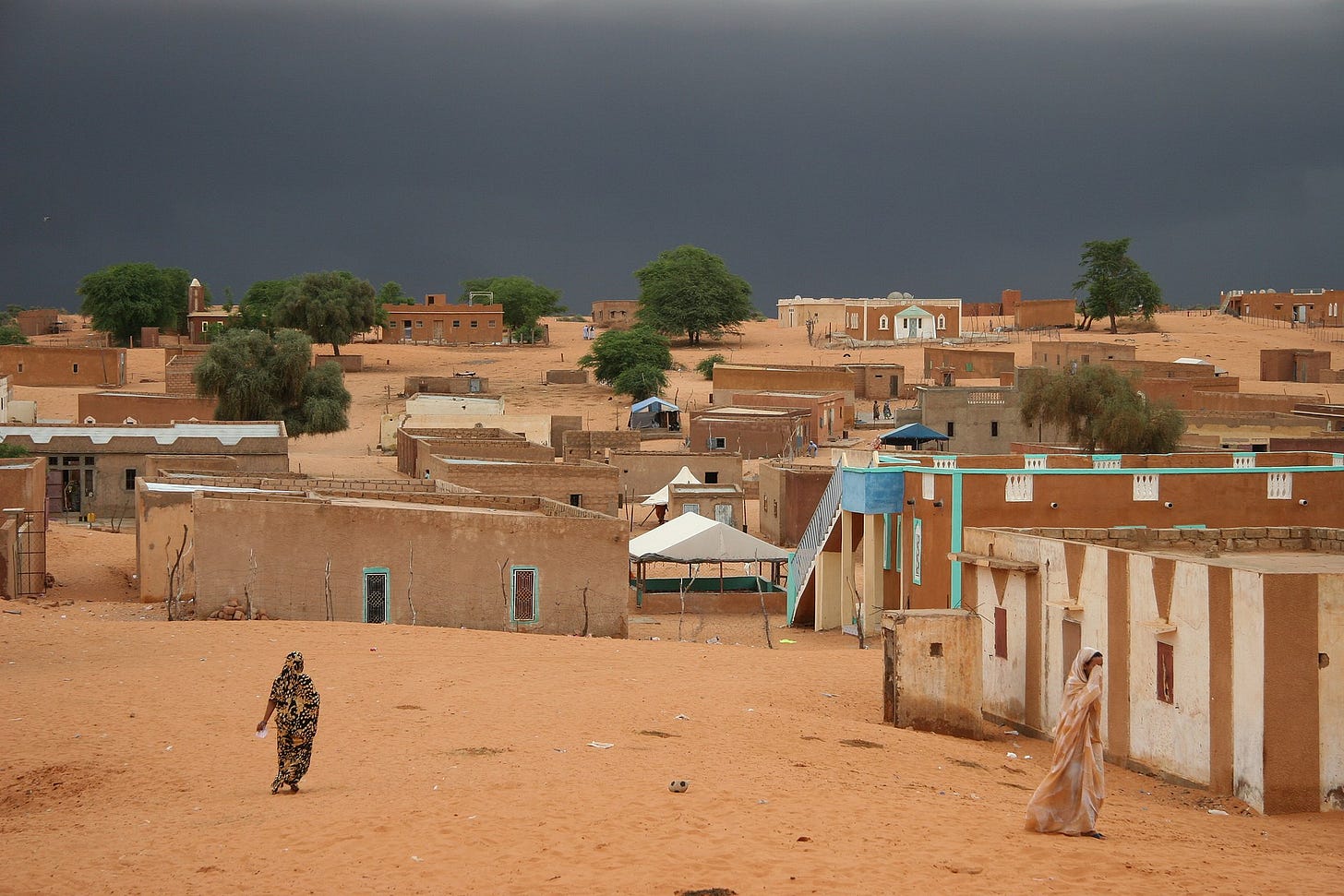The Mauritanian Posting
Jens Söring's father literally went to the ends of the earth to help his son.
[This is a lightly-edited repost from my old blog].
Commentator Stoppercrime alerted me to this article from 5 December 2021 in the London Sunday Times. It's pretty standard for 2021-era Söring coverage. The author stresses that Söring remains a convicted double-murderer, but recites his claims without bothering to check or evaluate them. Of course, the author doesn't mention my work or the Wright report. That may have been a condition for getting the interview, but I can't be sure.
One passage caught my attention:
His family did everything they could to help him in the years after his conviction. His father took hardship postings in Mauritania and Papua New Guinea to try to help with legal costs. But Soering fell out with his father ten years ago over an inheritance dispute and they are no longer on speaking terms.
When Jürgen Söring (not his real name) testified at his son's 1990 trial, he mentioned that he was stationed in Mauritania. I always found that curious: he had been posted in the USA, usually considered the second-most-desired diplomatic posting after nice European cities. His son Jens certainly benefited from this posting, getting an all-expenses paid scholarship to one of the world's great universities.
So how did Jürgen end up in the late 1980s in Mauritania, a windswept, thinly-populated West African nation which, according to Wikipedia, "was the last country in the world to abolish slavery, in 1981 and criminalized it only in 2007."? Now, thanks to information Jens Söring chose to disclose to one of the world's leading newspapers[efn_note] Söring supporters sometimes accuse me of invading Söring's privacy when I post about his family. I've never had any contact with any of Söring's family members. My posts are always based on things Söring has chosen to disclose to millions of strangers. Once again, Söring prefers to blame other people for the difficulties his own indiscretions and questionable choices have caused.[/efn_note], we learn more.
From things Söring has said publicly, it's evident that Jürgen demonstrated profound loyalty to his wayward son. We now know, again thanks to what Söring told the Times reporter, that Jürgen accepted dangerous, remote diplomatic postings to earn extra hardship pay to finance his son's legal defense. Usually, hardship postings are for young diplomats. Jürgen must have been working with much younger diplomats who wondered how he'd ended up there.
People often underestimate the amount of suffering the relatives of convicted murderers undergo. Many family members would have just cut their ties with someone who had done what Söring did. Jürgen, however, made enormous sacrifices to try to help his son. He essentially sacrificed his career, and even put his personal safety at some risk: Mauritania was at war with Senegal during the late 1980s and early 1990s. I find Jürgen's loyalty admirable.
Söring now says in post-release interviews that he caused "immeasurable suffering" to his family and "regrets" the fact that he has "lost contact" with them because of some dispute which he now refuses to describe.
But as we well know by now, Söring changes his story at will depending on whom he's talking to. Here is what he had to say about his father -- once again, publicly, to a potential audience of millions -- in 2019, on the Amanda Knox podcast:
[audio mp3="https://hammeltranslations.com/wp-content/uploads/2021/09/Soering-Erbstreit.mp3"][/audio]





I was in disbelief when I read somewhere that Söring was fighting with his brother and father over his late grandmother‘s estate. You‘d think that even if he were innocent, he‘d let this go in recognition of not only the financial burden that he has been to his family, but also as a small compensation for the sorrow and heartache he brought upon his family. I can only think of two possible explanations for Söring‘s attitude: Plain old greed and a fear that waiving his inheritance could be viewed as an admission of guilt.